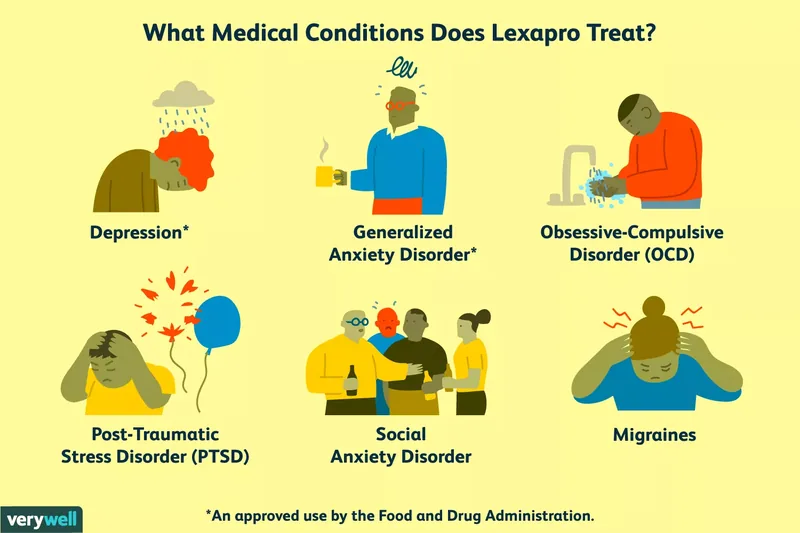Embrace Your Well-being: How Well Do You Treat Yourself?
In a world that constantly demands our attention and energy, asking "How well do you treat yourself?" isn't just a rhetorical question—it's a critical inquiry into your personal well-being. Many of us navigate life believing self-love is an innate quality, yet cultivating genuine self-compassion and effective self-care is a learned skill, crucial for a fulfilling existence. This guide will provide you with a clear roadmap, offering actionable strategies to prioritize your needs and foster a profound sense of self-worth. By the end, you'll understand not just why it's important to well treat yourself, but how to do it with intention and impact.
What You'll Learn:
- The foundational role of self-esteem and self-compassion.
- How to identify and manage your personal needs effectively.
- Practical steps from Need Management Therapy (NMT) to enhance your self-treatment.
- Strategies for overcoming common barriers to self-care.
- The ripple effect of self-love on your relationships with others.
Prerequisites:
- An open mind and a willingness to engage in self-reflection.
- A desire to improve your personal well-being and relationships.
1. The Foundation of Self-Love: More Than a Buzzword
At its core, self-esteem is your overall sense of self-worth and personal value. It's how you perceive and respect yourself. While often discussed, true self-love goes beyond mere confidence; it’s an active, compassionate stance towards your own being, especially in moments of failure or inadequacy. This pivotal concept, as articulated by the Dalai Lama, suggests that the quality of love we extend to others directly mirrors the love we cultivate within ourselves.
Cultivating self-love means acknowledging your inherent worth, setting healthy boundaries, and prioritizing your physical, mental, and emotional needs. Without this foundational self-compassion, our attempts to connect deeply with others can often falter, leading to codependency or resentment. Research by Kristin Neff (2011) highlights that self-compassion, distinct from self-esteem, involves treating oneself with kindness, understanding, and a sense of shared humanity, even when facing personal shortcomings.
2. Unpacking 'Love': A Journey, Not a Destination
Love, in all its forms—romantic, platonic, and self-love—is a profoundly intricate and ever-evolving subject. Unlike a course with a final exam, there's no singular certificate awarded for mastering love; it's a perpetual pursuit that deepens with life experience. Many ancient philosophies, from the Greeks defining Eros (passionate love), Philia (brotherly love), and Agape (spiritual love), to the Inuit's nuanced vocabulary for snow, demonstrate humanity's long-standing effort to categorize and understand complex phenomena. This rich history reminds us that understanding how well treat yourself is a kaleidoscopic journey, requiring ongoing exploration and adaptation.
In today's fast-paced world, this journey often involves navigating new challenges like digital burnout or information overload. Taking a digital detox or intentionally carving out quiet time are modern examples of how we must continually adapt our self-care strategies. Self-love is not static; it grows and changes as you do, demanding flexibility and a willingness to learn new ways to nurture your spirit.
3. Navigating the Nuances of Self-Treatment
Treating yourself well isn't always about indulgence or instant gratification. Sometimes, it means making difficult choices that serve your long-term well-being over immediate desires. Consider the youthful dream of owning a luxury car: while it might seem like a grand act of self-love, true self-treatment would involve assessing if that desire aligns with your maturity, safety, and financial stability. Authentic self-care often means choosing what you need over what you want, especially when those wants could lead to self-destruction or regret.
Moreover, the concept of love itself can sometimes take a dark turn. The phrase "love is a madness," famously penned by Shakespeare, reminds us that intense emotions, if unchecked, can lead to unhealthy attachments or even harm. Stanford researchers suggest that understanding the psychological underpinnings of attachment styles is crucial for developing healthy self-love, preventing the potential for self-sabotage or toxic relationship patterns. To truly well treat yourself, you must cultivate self-awareness and discernment, recognizing when your actions are genuinely nourishing versus merely appeasing fleeting impulses.
4. Introducing Need Management Therapy (NMT): Your GPS for Self-Compassion
Understanding and actively responding to your needs is the cornerstone of effective self-treatment. This is where Need Management Therapy (NMT) offers a groundbreaking approach. Developed by Johansen and Gaffaney (2021), NMT defines the self as a dynamic composite of circulating needs, constantly vying for expression and gratification. By learning to identify, acknowledge, and proactively manage these needs, you gain a powerful "GPS" for self-compassion and, consequently, for relating to others.
Here's how to apply the simple, stepwise principles of NMT to truly well treat yourself:
Step 1: Identify Your Core Needs and Related Feelings
- How: Pay close attention to your internal landscape. When you feel discomfort, stress, or even joy, ask yourself: "What need is underlying this feeling?" Is it a need for rest, connection, creative expression, safety, or intellectual stimulation? Journaling, mindfulness exercises, or simply pausing to reflect can help you pinpoint these needs in various social contexts.
- Why: Many of us operate on autopilot, reacting to situations without understanding the deeper needs driving our responses. Identifying these needs is the first step toward conscious self-care.
- Pro Tip: Create a personal "needs inventory" list. Regularly review it to see which needs are consistently unmet or over-satisfied.
Step 2: Acknowledge the Legitimacy of Your Fundamental Needs
- How: Once identified, validate your needs without judgment. Understand that all fundamental human needs are legitimate. For example, a need for quiet time isn't selfish; it's a valid requirement for introverts to recharge. Acknowledge that your need for connection, even if it feels vulnerable, is a natural human desire.
- Why: Often, we suppress or dismiss our needs due to societal pressures, past experiences, or a belief that we should be "stronger." Crowning your needs with positive status elevates their importance and makes proactive management possible.
- Pro Tip: Practice self-affirmations. Say to yourself, "It's okay for me to need rest," or "My desire for creative expression is valid."
Step 3: Proactively Manage and Actively Represent Your Needs
- How: This is where self-treatment becomes actionable. Develop strategies to meet your needs in healthy ways. If you need rest, schedule it. If you need connection, reach out to a friend. If you need boundaries, communicate them clearly and assertively. This involves setting limits, delegating tasks, or asking for support when necessary.
- Why: Proactive management prevents needs from escalating into crises. Actively representing your needs means taking responsibility for your well-being rather than waiting for others to intuit or fulfill them.
- Pro Tip: Start small. Choose one unmet need and devise a specific, measurable plan to address it this week. For instance, if you need movement, plan a 15-minute walk daily.
By following these steps, you build a healthier sense of self, which, in turn, enables you to target yourself with affection and compassion. This systematic approach answers the quintessential questions concerning the nature of the self and the specific steps by which to genuinely love oneself.
5. Troubleshooting Your Self-Care Journey
Even with the best intentions, roadblocks can appear on your path to better self-treatment. Here are common issues and quick solutions:
- Feeling Guilty for Prioritizing Yourself: This is a common hurdle, especially for those accustomed to putting others first. Solution: Reframe self-care not as selfish, but as essential for your capacity to help others. You can't pour from an empty cup. Harvard (2024) research emphasizes that self-compassion improves resilience and empathy, benefiting everyone around you.
- Overwhelm and Not Knowing Where to Start: The idea of managing all your needs can feel daunting. Solution: Begin with one small, achievable step. Pick one need you can address today, like taking a 10-minute break or drinking a glass of water. Small wins build momentum.
- Lack of Time: Modern life is busy, but time for self-care isn't found, it's made. Solution: Audit your time for 24 hours. Identify small pockets where you can integrate self-care, even just 5-10 minutes. Say "no" to non-essential commitments to free up space.
- Resistance or Self-Sabotage: Sometimes, we resist treating ourselves well due to ingrained negative beliefs. Solution: Gently challenge these beliefs. Ask yourself where they come from and if they truly serve you now. Consider working with a therapist to unpack deeper patterns.
6. Next Steps & Advanced Self-Compassion
Once you've integrated the foundational steps of NMT, you can deepen your practice of self-compassion and continue to well treat yourself in more sophisticated ways:
- Practice Mindful Self-Observation: Regularly check in with your emotional and physical state without judgment. Notice your thoughts and feelings as they arise, allowing them to pass without getting caught up in them.
- Cultivate Strong Boundaries: Learn to say no to requests that drain your energy or violate your values. Clear boundaries protect your time, energy, and emotional well-being, signaling to yourself and others that your needs are important.
- Engage in Values-Aligned Living: Ensure your daily actions are consistent with your core values. Living authentically is a profound form of self-treatment that brings deep satisfaction and reduces internal conflict.
- Seek Professional Support: If you find persistent challenges in identifying or managing your needs, a therapist can provide invaluable guidance and tools to navigate complex emotional landscapes.
7. People Also Ask (FAQ)
What does it mean to treat yourself well?
Treating yourself well means actively prioritizing your physical, mental, and emotional health. It involves listening to your needs, setting healthy boundaries, practicing self-compassion, and making choices that support your long-term well-being, rather than just seeking momentary pleasure. It's an ongoing commitment to nurturing your whole self.
How can I start treating myself better today?
Begin by identifying one small, manageable need. Perhaps it's a need for rest, connection, or a moment of quiet. Then, take one concrete action to address it, such as taking a 15-minute walk, calling a friend, or enjoying a mindful cup of tea. Consistency with small actions builds significant change.
Why is it so hard to treat myself well?
It can be challenging due to ingrained beliefs that self-care is selfish, societal pressures to prioritize productivity, past experiences of neglect, or a lack of awareness about one's own needs. Overcoming these often requires conscious effort, self-reflection, and sometimes professional guidance to reframe your relationship with yourself.
Is self-love selfish?
No, self-love is not selfish; it's essential. Just as you need to put on your own oxygen mask before assisting others on an airplane, nurturing yourself ensures you have the emotional and physical resources to genuinely support and connect with others. True self-love enables generosity and empathy, rather than depleting it.
How does treating yourself well impact others?
When you treat yourself well, you become a more resilient, empathetic, and present individual. This positively impacts your relationships by reducing irritability, fostering clearer communication, and allowing you to engage more authentically and generously with friends, family, and colleagues. It also models healthy self-care for those around you.
By embracing the principles of Need Management Therapy and committing to consistent self-reflection and action, you can fundamentally transform how well you treat yourself. This journey is an investment in your most important relationship—the one you have with yourself—and its positive ripple effects will extend to every area of your life. Start today, and experience the profound difference.









